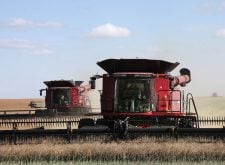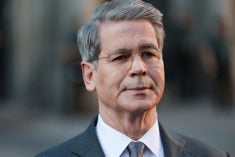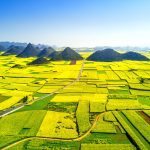Washington/Wellington | Reuters — Pacific Rim trade and foreign ministers on Tuesday pledged to sustain the recovery from the coronavirus pandemic while pursuing talks to curb subsidies for fisheries and agriculture at a forthcoming World Trade Organization meeting.
The ministers from the 21 Asia Pacific Economic Cooperation (APEC) countries said in a communique issued after a virtual meeting there was wide divergence in recovery across and within economies, with downside risks remaining.
“We need to sustain our economic recovery through continued policy support measures, while preserving financial stability and long-term fiscal sustainability,” the ministers said.
Read Also

U.S. grains: CBOT soybeans, corn, wheat fall in USDA data aftermath
Chicago grains took a dive on Friday, following a closely watched U.S. government crop report and the release of export data that could provide clues into Chinese buying.
They also said they would facilitate trade in a broader range of medical supplies to fight COVID-19 and voluntarily work to reduce the cost of vaccines and related goods. They pledged to support WTO negotiations on a temporary waiver of intellectual property protections on COVID-19 vaccines.
The ministers’ meeting is part of a week-long series of APEC conferences culminating in a summit on Friday into Saturday, hosted entirely online by New Zealand, a country with hardline pandemic control measures that has kept its borders closed to almost all travellers for 18 months.
While New Zealand has emphasized APEC support for boosting supply chains for critical medical supplies and efforts to decarbonize economies, tensions are expected over self-ruled Taiwan’s bid to join a regional trade pact in which China also seeks membership, and a U.S. bid to host the 2023 round of APEC meetings.
New Zealand’s Foreign Minister Nanaia Mahuta told reporters at a news conference in Wellington there was no agreement yet on which country would host APEC in 2023, despite an offer from the United States.
China and Taiwan’s bid to join the Comprehensive and Progressive Agreement for Trans-Pacific Partnership (CPTPP) was not a core part of the discussions, New Zealand’s Trade and Export Growth Minister Damien O’Connor said at the conference.
Taiwan’s has said it aims to use the APEC gathering to garner support for its bid to join CPTPP, while China, which has also applied to join the pact, opposes Taiwan’s membership.
“As a trade and economic forum all economies welcomed greater movement and reduction of trade barriers. CPTPP provides that but accession requests do mean that those applicants will have to look at standards required to ultimately become members and be accepted,” O’Connor said.
Opening travel
With many economies in the region dependent on tourism, the APEC ministers said they would work to ensure safe travel in the region, with “tangible outcomes in 2022.”
The trade-focused group said officials would work to foster a favourable trade and investment environment and “ensure our trade and investment environment is free, open, fair, non-discriminatory, transparent and predictable.”
The APEC ministers said they would engage at the WTO’s 12th ministerial meeting (MC12) at the end of November to modernize trade rules and deliver concrete results. They called for WTO countries to negotiate effective curbs on harmful fisheries subsidies at the meeting in Geneva.
As for agriculture, the ministers said, “despite its importance for ensuring global food security and sustainable economic development, agriculture is one of the most protected sectors in global trade.
“We recognize the need for a meaningful outcome on agriculture at MC12, reflecting our collective interests and sensitivities, with a view towards achieving substantial progressive reductions in support and protection,” in line with previous WTO mandates, the ministers said.
On climate-related issues, the ministers said they would try to accelerate efforts to rationalize and phase out “inefficient fossil fuel subsidies that encourage wasteful consumption,” a goal first agreed by APEC leaders in 2010.
Along with the U.S., China and Taiwan, APEC’s 21 member economies include Canada and its 10 fellow CPTPP countries, plus Russia, South Korea, Hong Kong, Indonesia, the Philippines, Thailand and Papua New Guinea.
— Reporting for Reuters by David Lawder and David Brunnstrom; additional reporting by Susan Heavey and Praveen Menon.














